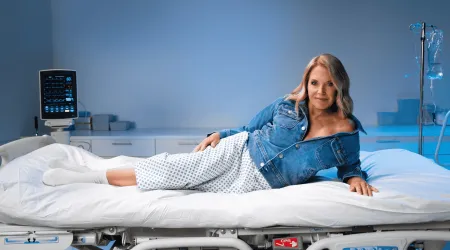Top five things to know about choosing sedation for your colonoscopy



Sedation involves using medications for relaxation and to reduce anxiety during medical procedures. It ensures patient comfort and cooperation. Several good options are available when it comes to colonoscopy sedation.
No Meds (None): Almost never chosen. No recovery time, but there might be some discomfort during the procedure. You'll remember it all.
Light Sedation (A Bit Sleepy): You might need some help moving around afterward, and you'll remember a little bit of the procedure.
Moderate Sedation (Nice and Calm): The most common choice. You won't remember much, and you'll be a bit sleepy during and after. It's good to have someone with you for a short time while it wears off.
Deep Sedation (Deep Relaxation): You won't remember a thing. It takes quite a bit longer to feel normal, and you might be a bit groggy for the rest of the day.
General Anesthesia (You’re out): Rarely used because it comes with more risks. Takes the longest to wake up, and you need extra monitoring. Some people take a day or so to feel themselves after.
If you are having trouble deciding on the right sedation for your colonoscopy, here are some things to consider:
Recovery Time: Different sedation levels affect recovery times differently. If you prefer a quicker return to your regular activities, lighter sedation options or even skipping sedation might be for you.
Anxiety Management: Anxiety is common, and you don’t have to suffer. Choosing the right sedation can help. Lighter sedation may allow you to stay more aware, while deeper sedation can provide a more relaxed experience. Discuss your anxiety levels openly with your healthcare providers to ease your mind.
Post-Procedure Assistance: Do you have a support person? You can not drive until you have fully recovered from sedation. You will feel drowsy and certain activities may not be safe until you are fully alert. Make sure you have someone on hand to help as needed.
Individual Health Factors: Your individual health matters when choosing sedation. If you have specific health concerns, such as respiratory or cardiovascular issues, talk to your doctor. Some options may be better than others based on your individual situation.
No matter what type of sedation you choose for your colonoscopy, you’ll still have bowel prep.
It's a requirement for everyone who has a colonoscopy, and it helps to make sure the procedure goes smoothly. You'll drink special liquids or take tablets provided by your doctor. You’ll also need to have lots of clear liquids like clear broth or sports drinks. The purpose of bowel prep is to clean out your insides, making it easier for the doctor to have a clear view during the colonoscopy.
There are a few things you can do to help you recover well after sedation.
Choose Support: Choose someone you feel comfortable with to support you on the day of your colonoscopy. Someone who can drive, has a good sense of humor and some compassion is the perfect choice.
Stay Hydrated: After your colonoscopy, you should sip on clear liquids to stay hydrated. Take small sips and drink slowly as you resume normal activities.
Snack Light: Choose soft snacks following. Consider things that are easy to digest like yogurt or applesauce to start and then ramp up to your normal diet.
Take It Easy: Plan for a relaxed day. Recovering by watching your favorite shows or reading is a great way to do this. A clear schedule will allow you to relax and go at your own pace.
Ask Questions: Discuss any concerns or questions you have about recovery, sedation, or anything else with your healthcare team. They are there to support you.
Sure, a colonoscopy is not all fun, but it’s really not bad either. And it could save your life.
When you have a colonoscopy with sedation, it's like taking a short nap. It doesn’t take long at all. People don’t usually feel pain or discomfort during the procedure. Sedation ensures that you won’t feel anxious or uncomfortable and your healthcare team will be there to support you.
Talk to your doctor if you have any questions about which type of sedation is right for you, and remember, screening through colonoscopy is the best way you can protect against colon cancer and rectal cancer.

Americans increasingly view colorectal cancer screening encouragement as an act of love, with new survey data showing rising openness about lifesaving prevention.

Katie Couric joins the Colorectal Cancer Alliance and Ryan Reynolds’ Maximum Effort to expand LEAD FROM BEHIND, a star-powered campaign breaking stigma and urging lifesaving colon cancer screening. Colon cancer is the preventable cancer.

The Colorectal Cancer Alliance and more than 20 Screen Smart partners urge HHS Secretary Robert F. Kennedy Jr. to protect USPSTF’s evidence-based process and no-cost preventive screenings like colorectal cancer screening, which save lives and improve national health.